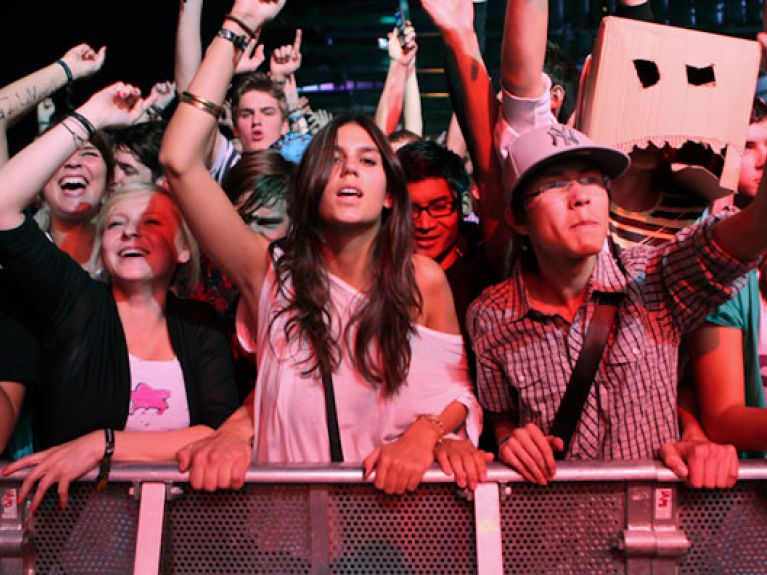Open air festivals are all the rage
The music industry is dead, long live the music industry. Berlin Music Week is the high point of an industry that has been thoroughly shaken up.

By the time singer-songwriter Philipp Poisel presents the winners of the New Music Award 2012 at Admiralspalast in Berlin, the German capital will have enjoyed a week jam-packed with music. Musicians and DJs will be displaying their creative potential in Berlin’s clubs, on the city’s rooftops and on dozens of stages around the capital. The caravan will then move on to Hamburg’s Reeperbahn Festival, which has long been one of the hot tips in the scene. Popkomm, on the other hand, is no longer on the music calendar – this international music fair now appears to be coming to an end for once and for all. “Under conceptual construction” reads the website, reflecting the upheaval which the entire industry has experienced.
With revenues of 1.67 billion euros in 2011, the German music market is the third-largest in the world after the US and Japan. In the new millennium, however, sales initially dipped as fewer and fewer music-lovers bought CDs in today’s digital world. Even though physical sound recording media still account for the most sales according to the German music industry association, the clear downward trend here is impossible to overlook, with sales down 3.8 percent of late. The decline in total revenues was only halted in 2011, above all thanks to digital sales. Fans of rock and pop music increasingly buy songs or entire albums to download. In the first half of 2012, music downloads surged by nearly a third in Germany as compared to the previous year. One in five euros generated by music sales in Germany now stems from digital sources. That said, many people still avoid paying any money, illegally downloading songs or listening to music by streaming it via platforms that often leave musicians and record labels out of pocket.
This means that the boom in music festivals is all the more important for artists, with tickets for open air festivals in particular giving rise to growing revenues. This is according to reports from the German music industry association, which in 2011 recorded sales from music events totalling more than 2.7 billion euros. Many visitors to such “happenings” no longer want merely to listen to music. “Festivals offer people a social home for a few days”, explained Babette Kirchner, who researches at the department of sociology at TU Dortmund, in an interview. She says that this creates the same sense of community which people used to experience in political parties, sports clubs or youth organizations, yet no-one has to sign up to anything long-term. This is clearly a recipe for success: Festivalguide magazine lists hundreds of music festivals, with an estimated 1,000 in Germany alone. These include cult events like the heavy metal open air festival in Wacken, classic events such as “Rock am Ring” and the Melt Festival near Dessau – attracting visitors from all over the world.
Berlin Music Week from 5 to 9 September 2012; Hamburg Reeperbahn Festival from 20 to 22 September 2012
www.berlin-music-week.de/ Berlin Music Week website
www.reeperbahnfestival.com/ Hamburg Reeperbahn Festival website
www.festivalguide.de/ Festivalguide magazine website
© www.deutschland.de